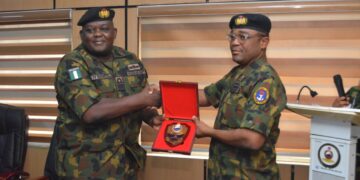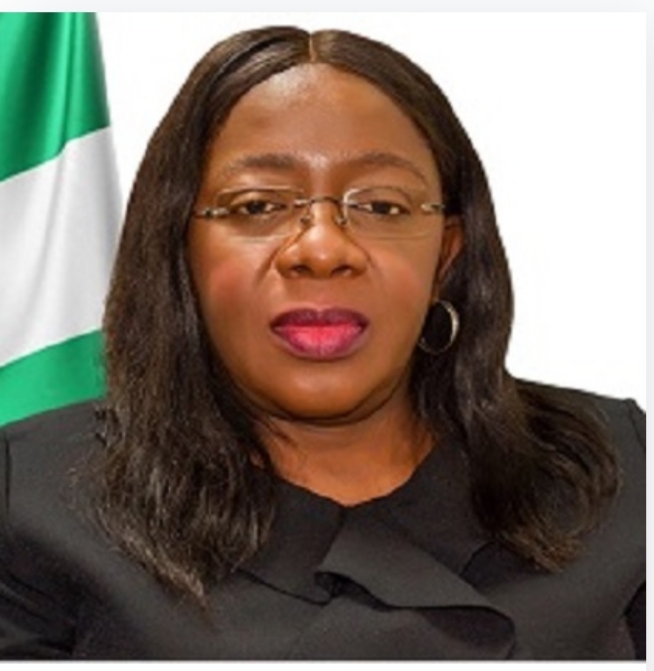The Permanent Secretary, Federal Ministry of Transportation, Dr. Magdalene Ajani, on Friday reiterated that the Nigerian Shippers’ Council (NSC) remained the only port economic regulator.
Ajani made the pronouncement at the sensitisation seminar with the theme: “Promoting Competitiveness in the Maritime Industry: The Mandate of Nigerian Shippers’ Council,” in Lagos.
She noted that the Federal Government 2015 declared the council as the port economic regulator.
Ajani said that as the port economic regulator, NSC was saddled with the responsibility to institute effective regulation at ports, working with other government agencies.
She, however, enjoined all stakeholders in the maritime industry to give the council the needed cooperation and support.
“I want us to note that while the Shippers’ Council is the port economic regulator, the Nigerian Ports Authority remains the technical and operational regulator. This is very key so that we understand the distinct role between the two agencies.
“Having realised that these two agencies are working within the mandate of the law of Nigeria, we, therefore, urge all those in court to have a rethink.
“This is for us to enable a good progression in the marine ecosystem and deliver the Nigerian economy of our dream,” she said.
Ajani said that the council port economic regulatory mandate and rules should be reflected in the port concession agreement under review and other subsequent agreements.
“Relying on the sub-existing order on the port economic regulation as issued by the president of the Federal Republic of Nigeria, I hereby reaffirm that the Nigerian Shippers’ Council remains the interim port economic regulator in our nation’s port.
“This is pending the establishment and operationalisation of the national transport commission as an independent regulatory authority in the transport sector,” she said.
Ajani recalled that the nation’s port prior to 2006 port concession agreement had the lowest level of efficiency with anomalies such as the imposition of different tariffs and shortage of modern cargo handling equipment, among others.
She noted that the NSC was appointed as an interim port economic regulator in 2014 to fill the vacuum and address the challenges bedeviling the port system.
Ajani said that the major objective of the government in appointing the NSC as an interim port economic regulator was to create an effective regulatory regime at the port.
“The port economic regulator organ as gazetted has provided for various functions and roles of the council in line with the provisions of section 3c, f and j of the Nigerian Shippers’ Council Act cap 133 Law of the Federation 2004,” she said.
Earlier, Mr. Emmanuel Jime, the Executive Secretary, NSC, noted that the port as a critical infrastructure needed to be competitive and should not be for free entry and exit.
According to Jime, this is in order for its users to enjoy the benefit of lower prices and efficient service delivery usually associated with competition.
“It is against this backdrop that the Federal Government of Nigeria, pursuant to the Nigerian Shippers Council Act Cap N133 LFN 2004, appointed NSC as the Ports Economic Regulator.
“The aim is to create an effective regulatory regime at the Nigerian ports for control of tariffs, rates, charges and other related economic services, make the transportation sector efficient and contribute positively to the development of the nation’s economy,” he said
Jime noted that the council could only achieve its mandate with the support and collaboration of all players in the industry.
Also, Bongo Adi, Professor of Development Economics and Data Analytics, Lagos Business School, said that the port system was a natural monopolistic system and needed regulation to protect public interest.
Speaking on the theme, Adi lamented that the council could not regulate effectively due to pre-concession issues.
He called for an introduction of standards of operations for operators in the market space to make NSC regulation easier.
Other dignitaries present at the event are Dr. George Moghalu of the National Inland Waterways Authority, Mrs. Margaret Orakwusi, Chairperson of Nigerian Ship-owners Forum, Mr. Kunle Folarin, Chairman, Port Consultative Forum and Managing Director, Grimaldi Agency Nigeria Limited, Mr. Ascanio Russo, among others.
Credit: NAN.
































































